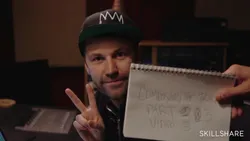
Remixing Dance Music: Digital Production Basics 
The duration of this class is 60 minutes, DJ King Arthur (Hexagon/Spinnin Records) will teach you the basics of digital production and how to create a remix from scratch. Learn how to use the tools and techniques of remixing dance music to make your own unique track and gain a foothold in the music industry. ▼
ADVERTISEMENT
Course Feature
![]() Cost:
Cost:
Free Trial
![]() Provider:
Provider:
Skillshare
![]() Certificate:
Certificate:
No Information
![]() Language:
Language:
English
![]() Start Date:
Start Date:
On-Demand
Course Overview
❗The content presented here is sourced directly from Skillshare platform. For comprehensive course details, including enrollment information, simply click on the 'Go to class' link on our website.
Updated in [March 06th, 2023]
King Arthur, a globe-trotting DJ from Hexagon/Spinnin Records, will guide students through the basics of remixing dance music in this 60-minute class. Students will learn how to define the purpose of their remix, create a groove with baselines and leads, utilize percussion to set the tempo, add transitions to polish a track, include intros and outros, and tips on sharing and spreading the track. By the end of the class, students will have created a remix of their own. It is recommended that students have a basic understanding of digital music production (any digital audio workstation will suffice) to fully utilize the lessons King Arthur shares.
[Applications]
After taking this course, participants should be able to apply the knowledge they have gained to create their own remixes. They should be able to define the purpose of their remix, create a groove with baselines and leads, utilize percussion to set the tempo, add transitions to polish the track, include intros and outros, and share and spread the track. Participants should also have a basic understanding of digital music production and be able to use any digital audio workstation to create their remixes.
[Career Paths]
1. Music Producer: Music producers are responsible for creating and producing music for various media outlets, such as radio, television, film, and video games. They work with artists to create the best possible sound for their projects. They also oversee the recording process, mixing, and mastering of the music. The development trend for music producers is to use more digital tools and techniques to create unique and innovative sounds.
2. Audio Engineer: Audio engineers are responsible for recording, mixing, and mastering audio for various media outlets. They use a variety of tools and techniques to create the best possible sound for their projects. The development trend for audio engineers is to use more digital tools and techniques to create unique and innovative sounds.
3. Music Composer: Music composers are responsible for creating original music for various media outlets. They work with artists to create the best possible sound for their projects. The development trend for music composers is to use more digital tools and techniques to create unique and innovative sounds.
4. DJ: DJs are responsible for playing music at various events and venues. They use a variety of tools and techniques to create the best possible sound for their projects. The development trend for DJs is to use more digital tools and techniques to create unique and innovative sounds.
[Education Paths]
1. Audio Engineering Degree: Audio engineering degrees provide students with the technical skills and knowledge to work in the music industry. This degree focuses on the recording, mixing, and mastering of audio recordings. Students will learn about the fundamentals of sound, acoustics, and digital audio production. They will also learn about the latest technologies and trends in the music industry. Developing trends in audio engineering include the use of virtual reality and artificial intelligence in music production.
2. Music Production Degree: Music production degrees provide students with the skills and knowledge to create and produce music. Students will learn about the fundamentals of music theory, composition, and arrangement. They will also learn about the latest technologies and trends in the music industry. Developing trends in music production include the use of virtual instruments and digital audio workstations.
3. Music Business Degree: Music business degrees provide students with the skills and knowledge to work in the music industry. This degree focuses on the business side of the music industry, such as marketing, promotion, and distribution. Students will learn about the fundamentals of music business, copyright law, and music industry contracts. They will also learn about the latest technologies and trends in the music industry. Developing trends in music business include the use of streaming services and digital distribution.
4. Music Technology Degree: Music technology degrees provide students with the skills and knowledge to work in the music industry. This degree focuses on the use of technology in music production, such as digital audio workstations, virtual instruments, and audio effects. Students will learn about the fundamentals of music technology, sound design, and audio engineering. They will also learn about the latest technologies and trends in the music industry. Developing trends in music technology include the use of artificial intelligence and machine learning in music production.
Pros & Cons

Informative and helpful

Great instructor and knowledgeable

Student questions were answered

Course was too short

Instructor not active

Room was too dimly lit
Course Provider

Provider Skillshare's Stats at AZClass
Discussion and Reviews
0.0 (Based on 0 reviews)
Explore Similar Online Courses

Introduction to UX Research
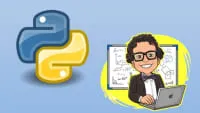
Python 3 in 100 Minutes

Python for Informatics: Exploring Information

Social Network Analysis

Introduction to Systematic Review and Meta-Analysis

The Analytics Edge

DCO042 - Python For Informatics

Causal Diagrams: Draw Your Assumptions Before Your Conclusions

Whole genome sequencing of bacterial genomes - tools and applications
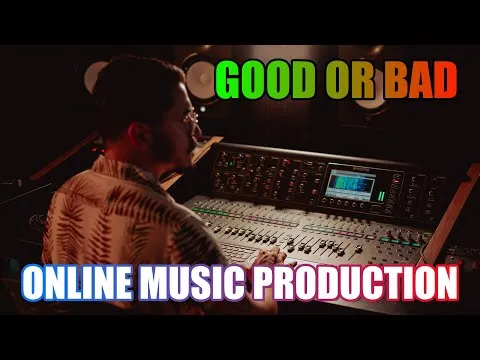
online music production course good or bad
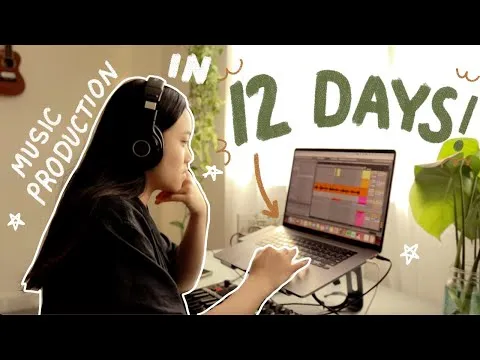
I Learn How to Produce Music in 12 DAYS!
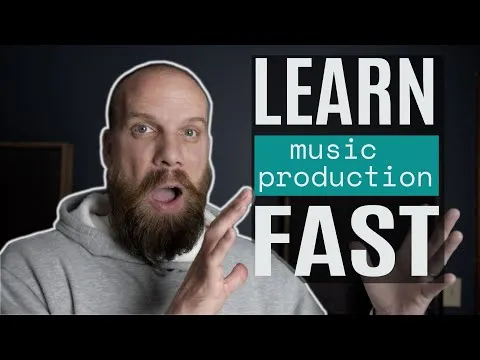
Music Production Classes Online
 Related Categories
Related Categories
 Popular Providers
Popular Providers
Quiz
 Submitted Sucessfully
Submitted Sucessfully
1. What is the recommended level of understanding of digital music production for this class?
2. What is the duration of this class?
3. What is the main purpose of this class?


Start your review of Remixing Dance Music: Digital Production Basics